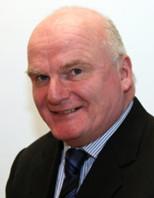Description
Sensors and sensor systems are an essential and often critical part of IoT solutions and applications. If one views IoT as the enabling technology and infrastructure for operating end-to-end platforms that take advantage of the Internet’s global reach – then sensors are the essential source of data and information that drives the value chain and ultimate utility of solutions and applications. The aspects of what the Track will cover include:
- The underlying technology and principles of novel (analogue and digital) physical and virtual sensors. This includes sensors that may measure simple physical quantities (pressure, temperature, moisture, chemical composition, etc), complex sensors such as LIDARs, radars, imagers exploiting different portions of the electro-magnetic and sound spectrum (including vibrometry), as well as hyperspectral, multi-modal and information sensors (extracting information from data in digital form), and lastly sensors that can be used to deduce or identify a specific condition or specific information (such as a failure mode of a piece of equipment, the presence of an object or feature, or an identity)
- How the sensors or sensor systems may be used in an operational setting addressing system level issues and trade-offs. This includes the choice of overall architecture, the role of accompanying technologies as well as capital and operating expenses acceptable for effective solutions and applications. As important is the ability to meet both functional and intrinsic requirements and successful economic and business models for deployment. Other issues addressed in the track involve standardization, policy and regulations, security and privacy, the ethical uses of sensor technologies, and the societal consequences of widescale use. With large investments in industrial IoT, connected health, autonomous cars, retailing, and consumer services comes the need to deal with the fundamental complexity and distributed nature of IoT applications – and the understanding of what is technologically mature and market ready and what is still in the offing.
Applications of sensors and sensor systems to specific functions in various verticals and markets stressing experiences from trials and demonstrations. For WFIoT2022 emphasis is placed on sensors for the market/vertical segments that are a part of the conference including Agriculture, Energy and Power, Environment and Ecology, Healthcare, Industry and Manufacturing, Smart Cities and Smart Buildings. This also includes horizontal services and infrastructure such as options for connectivity (fixed, wireless, space based, and terrestrial mobile), access to computing and storage (embedded, local, edge, fog and cloud), as well as platforms and frameworks for exploiting other important technologies such as Artificial Intelligence and Machine Learning, Virtual and Augmented Reality, Data aggregation and curation, support for industrial automation and for autonomous platforms.
Chairs
Dr.Elfed Lewis

Elfed Lewis was born in Holyhead, Wales in 1959. He graduated with BEng (Hons) in Electrical and Electronic Engineering from Liverpool University in 1981. He was awarded a PhD from University of Liverpool in 1987 for work on high-speed photography and spectroscopy of electric circuit breaker arcs during the current zero phase. Following this, he worked as development engineer with BICC Telecom. Cables, Prescot, Merseyside in conjunction with University of Liverpool developing chromatic modulation based optical fiber sensors for a wide range of applications. In 1989 he Joined Liverpool John Moores University where he initiated the research activity in Optical Fiber Sensors. The group investigated sensors for environmental monitoring including water contamination and pH. In 1996 he joined University of Limerick at which time he established and has since led the Optical Fiber Sensors Research Centre. He is Associate Professor and Director of the Optical Fiber Sensors Research Centre at University of Limerick. He is Fellow of Institute of Physics, IET and Senior member IEEE. He has authored and co-authored more than 190 journal papers and made in excess of 300 contributions to international conferences. He currently holds 9 patents on Optical Fiber Sensor Devices. In 2005 he was recipient of the University of Limerick Special Achievement in Research Award and was a Fulbright Scholar with CREOL (University of Central Florida) in 2008. He was Distinguished Lecturer for IEEE Sensors Council for the period July 2013-June 2015 and is currently Vice President for Technical Operations for IEEE sensors Council. He was General Chair of the IEEE Sensors 2011 conference and European Workshop on Optical Fiber Sensors (EWOFS 2016) held at University of Limerick. He was co-chair of the IEEE World Forum on Internet of Things (WFIoT) (April 2019 held at University of Limerick, Ireland).


